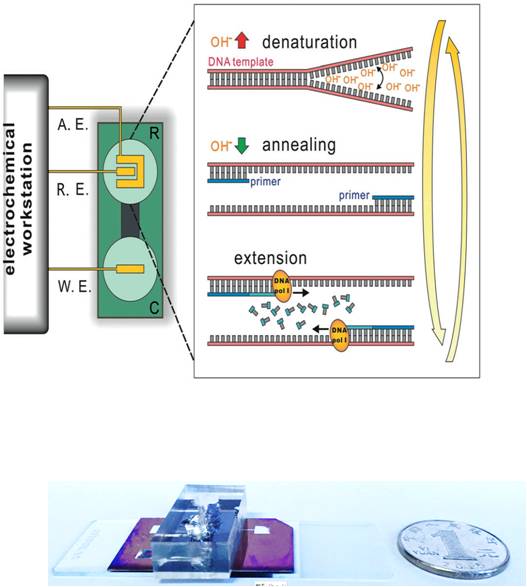The polymerase chain reaction (PCR) is a powerful method for exponentially amplifying very low amounts of target DNA from genetic, clinical, and forensic samples. However, the heating and cooling steps in PCR largely hamper the miniaturization of thermocyclers for on-site detection of pathogens and point-of-care tests. Herein, we devise an ion-mediated PCR (IM-PCR) strategy by exploiting ion-induced DNA denaturation/renaturation cycles. DNA duplexes are effectively denatured in alkaline solutions; whereas, the denatured single-stranded DNA strands readily reform duplexes at neutral pH. By using an integrated microchip that can programmably control the solution pH simply switching the potential in a range of several hundred millivolts, Yi Zhang, Qian Li and Chunhai Fan et al. can trigger IM-PCR at a constant temperature (Angew. Chem. Int. Ed. 55 (2016) 12450-4). Analogously to thermal cycling, 30 cycles of pH-induced denaturation/renaturation were used to amplify protein DNA fragments as confirmed by DNA sequencing. It is anticipated that this portable, low-cost, and scalable IM-PCR holds great promise for widespread biological, clinical, and environmental applications.


